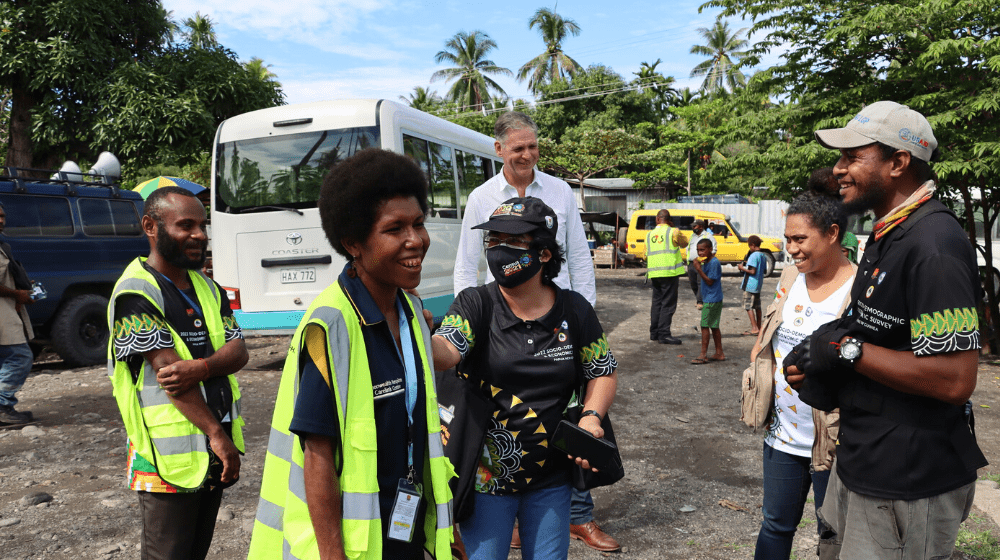The United Nations Population Fund (UNFPA) and the National Statistical Office (NSO) have completed a sampling workshop to strengthen the collection of high-quality, representative population data for Papua New Guinea.
Mr. Popona Morris, the head of the Sampling and Projection Unit at the NSO, was one participant who saw this training could have an immediate benefit to his work.
“This is an important training for me and the knowledge that I have acquired here is critical to my line of work and I will be able to apply this methodology to all the surveys that NSO conducts, ” Mr. Morris said. “Overall, the training was delivered well from both a theoretical and practical point of view.”
When it is not possible, whether due to time or financial constraints, to collect information from the entire population, researchers and organisations have to survey a selected sample of the population. For the findings of the survey to be accurate, that sample should be representative of the general population. For example, it should include an accurate estimation of the proportion of men and women, and of different age groups.
Together with representatives from the National Research Institute and the University of Papua New Guinea, participants from NSO were led by Sampling Expert and International Technical Consultant Dr. Bart De Brujin, who shared and discussed the sampling design for the Socio-Demographic and Economic Survey which was recently concluded and how to use the Statistical Package for Social Sciences (SPSS), a statistical software usually used for data analysis and management.
National Statistician Mr. John Igitoi expressed gratitude for a much needed capacity building training for his staff and partners, reaffirming also NSO’s core role as to securing reliable statistics for development planning.
“Not only does the NSO produce statistics, we coordinate and scrutinize them as well. There are Government departments that collect and manage their own data but it is NSO’s responsibility to coordinate and scrutinize this data and ensure it is sound,” Mr. Igitoi said. “I am thankful for this session which will enhance the skills of my staff to be more well educated when it comes to sampling design.”
Mr. Igitoi also thanked UNFPA and the Australian Government for their significant and ongoing support to the NSO.
UNFPA Country Representative Ms. Marielle Sander joined Mr Igitoi in emphasising the importance of the training to enhance the quality of the survey data.
“This sampling training is one critical component of our partnership with the NSO, supported by the Australian Government. The other components are a population estimate using a remote sensing technology, Socio-Demographic & Economic Survey, data literacy and appreciation program, and analysis of data,” said Ms. Sander. “This is an opportunity for NSO and partners to expand their expertise in this area and to apply the tools needed to ensure that the PNG government has access to the evidence-base for decision-making. Data must be put to work to be useful, and NSO holds the key. We are very pleased to offer this service for PNG.” ng with NSOservice we are doing for Papua New Guinea.”
“If we do not get the sampling process right, we might be forgetting or excluding some segments of the population who are farthest behind. We need this so we can identify the priority population and to have a better understanding of the whole country.”
About UNFPA and Population Data
The Population Data Project is an initiative of the National Statistics Office (NSO) with support from the United Nations Population Fund (UNFPA) and the Australian Government. This project includes a Socio-Demographic and Economic Survey of 5,000 households, population estimation exercises, data analysis, and data literacy workshops with youth, civil society, media, national and provincial government.


